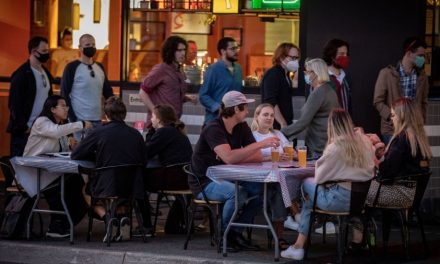Nina Simone (left) and Ice T. Their songs of protest are still relevant to today’s Black Lives Matter movement.
As American streets caught fire with rage and righteous anger in June of this year after the murder of George Floyd, the cacophony of a new revolution rang out around the world.
Like many, I found myself falling down a cable news worm hole trying to get inside what was really going on. As I did, it slowly dawned on me that for this uprising, there was something missing.
This was a revolution without a soundtrack.
Where was the anthem, the artists, the songs that were giving voice to the indignation and fury, the sense of injustice, the need to set things to right?
And was it even fair to expect there to be? Maybe, as a middle-aged child of the television generation and rock ‘n roll radio, I was just out of touch with the times?
Just because I was born in the year of revolution, 1968, when the Rolling Stones puffed their chest out and cos-played being guerrilla warriors with “Street Fighting Man”, doesn’t mean Millennials had to abide by my preferred cultural play book.
Maybe these days, what a poor boy could do was not bother singing in a rock ‘n roll band about revolution, but find another way altogether to stick it to the man.
Still, after nearly four years of a Trump White House and a couple of years of Boris Johnson slobbing around No. 10, the guitars and samplers have fallen silent.
Was it too much to expect this generation of artists to pour some of their vinegar into a musical Molotov cocktail to lob at today’s cabal of populist cretins?
By comparison, the first five years of Margaret Thatcher’s government produced a fusillade of brilliant, biting tunes that aimed to put a dent in the “Iron Lady”.
Everything from The Specials dystopian urban masterpiece “Ghost Town”, Elvis Costello & Robert Wyatt’s achingly beautiful Falklands War lament “Shipbuilding”, to the punk outrage of The Angelic Upstarts vein-popping blood lust with ‘Brighton Bomb”, Thatcher’s greatest legacy was the music that hated her.
Today, we get Kanye West playing footsie with Donald Trump in the Oval Office and running a looney-tuned Presidential campaign circus as a side dish.
Ever since Elvis shook his hips on the Ed Sullivan show, popular music has been a willing and powerful accomplice to rebellion, dissent and resistance.
True, music alone can’t change the world, but it can and does change and shape attitudes.
As documented in the recent, brilliant podcast series “Wind of Change” that investigates the conspiracy theory that the CIA wrote the Scorpions’ epic power ballad about the fall of the Soviet Union (I kid you not), music is a potent and powerful cultural signifier.
At least it has been. Has that moment now passed?
The sound of resistance has produced some of the most enduring and bittersweet songs that are treasured as a sign of the times in which they were forged.
These tunes not only chronicle the struggle, they offer successive generations of listeners a unique window on another time but also a thread to where we are today.
Who could listen to Nina Simone’s searing condemnation of Jim Crow-era America, “Mississippi Goddam”, and not think of how it echoes with the Black Lives Matter protests rumbling across American streets 50 years later?
“Alabama’s gotten me so upset
Tennessee made me lose my rest
And everybody knows about Mississippi goddam!”
Even more potent and prescient is a song written in 1937 by activist and songwriter Abel Meeropol and made immortal by Billie Holiday in 1954, “Strange Fruit.”
“Southern trees bear a strange fruit
Blood on the leaves and blood at the root
Black bodies swinging in the southern breeze
Strange fruit hanging from the poplar trees”
The lynching depicted so starkly in “Strange Fruit” is now the knee on the neck of a black man in police custody baring the same, bitter fruit. It is music that connects us to how much has changed and also, how little.
The last great urban conflagration in the United States to prompt a short, sharp, brutal musical response happened in the early ‘90s.
When the beating of Rodney King exposed the racism and brutality of the LA Police in 1991, rapper Ice-T and his metal band Bodycount unleashed a vicious riposte with “Cop Killer”.
The backlash to Bodycount’s homicide/revenge fantasy was as ferocious as the song itself, forcing the song to be withdrawn and Ice-T to walk away from his contract with Time-Warner, who buckled under the pressure.
In an interview I did with Ice-T in 1992 I asked him, in a country awash with film and TV’s shows exploiting and profiting from gun violence and cop killings, why was it a song that brought corporate America to train its gun on him?
“When everybody asks – why are people attacking rap (and Bodycount) – what is the problem – I tell them, not just that the white kids are listening, but the white kids are becoming allies in the black struggle and the minority struggle,” he said.
“You’ve got the white kid going home and saying – fuck the police! And their mother saids – what do you care about black people? And the kid saids “fuck you! Now that is when we’ve got a problem, because this shit is suddenly real for white America – and they still ain’t ready for that.”
As true then it would seem as it is now.
Even if the soundtrack for the resistance is yet to be written, it doesn’t mean it won’t be realised. Often, these things take time and are no less potent in retrospect.
Either way, no matter. The songs remain the same, as do so many of the problems. The great gift of music is that it lives on to fight another day, and helps us do so as well.













Excellent, insightful analysis, Frankie!